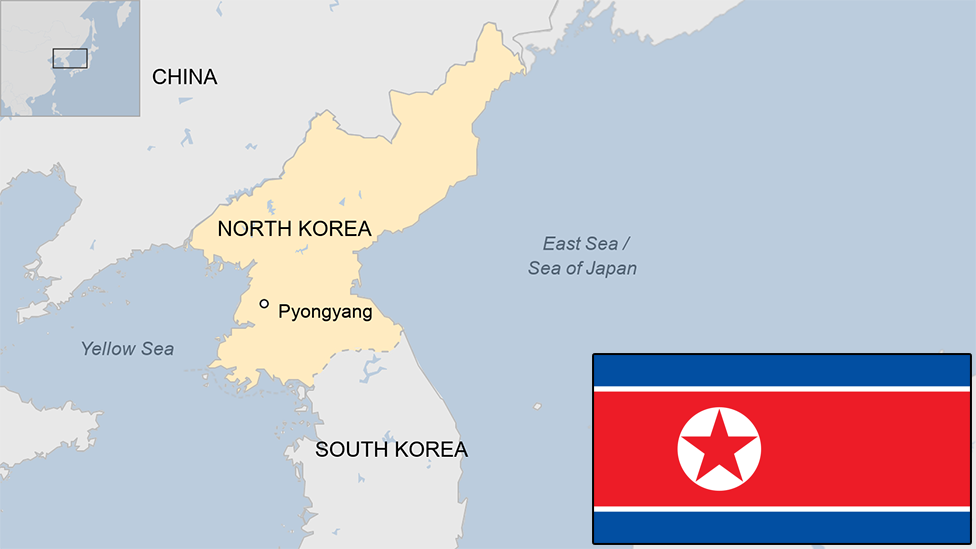US warning over North Korea rocket flight path
- Published
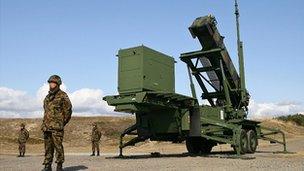
Japan is readying interceptor missiles in case the North Korean rocket threatens its territory
A US official says a North Korean rocket due to be launched next month may affect an area between Australia, Indonesia and the Philippines.
US Assistant Secretary of State Kurt Campbell is reported to have asked the three countries to condemn the launch.
North Korea says the rocket will take a new southern trajectory instead of a previous route east over Japan.
Japan is readying anti-missile defences around the southern islands of Okinawa, which could be under the flight path.
North Korea says the rocket is intended to put a satellite in space, but the US and others say the launch is a cover for a long-range missile test - a potential delivery system for nuclear weapons.
The launch is expected to dominate a security summit on Monday in the South Korean capital Seoul, which will be attended by US President Barack Obama.
Australia's Sydney Morning Herald, external said Mr Campbell had briefed Australian Foreign Minister Bob Carr on Friday on the rocket's southward trajectory.
"If the missile test proceeds as North Korea has indicated, our judgment is that it will impact in an area roughly between Australia, Indonesia and the Philippines," the paper quoted Mr Campbell as saying.
"We have never seen this trajectory before. We have weighed into each of these countries and asked them to make clear that such a test is provocative and this plan should be discontinued."
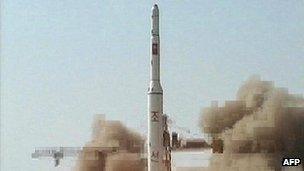
North Korea's last rocket launch in 2009 triggered UN sanctions
BBC Asia analyst Charles Scanlon says Pyongyang appears to be trying to soften the political impact of its planned rocket launch.
It has chosen a new southerly route mainly over open sea, avoiding what is regarded as a more provocative easterly trajectory over the main Japanese island.
North Korea's state-run KCNA news agency said: "A safe flight orbit has been chosen so that carrier rocket debris to be generated during the flight would not have any impact on neighbouring countries."
North Korea has shown a growing mastery of ballistic technology during its three previous long range tests.
However, experts say that none has succeeded in reaching orbit, and debris has fallen to earth at various stages during the launches.
Pyongyang said last week that the launch - between 12 and 16 April - would mark the 100th birthday of its late Great Leader Kim Il-sung.
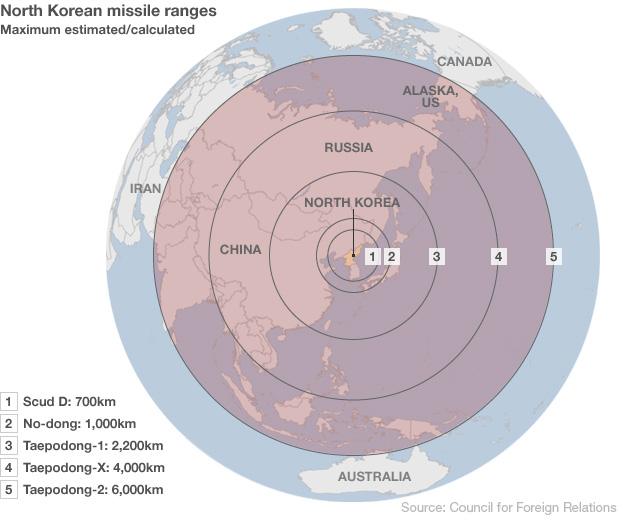
- Published23 March 2012
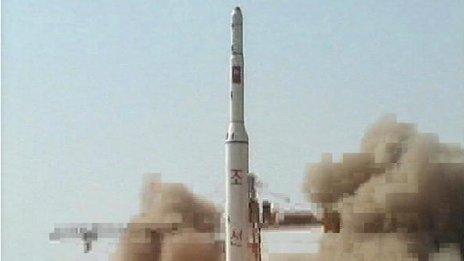
- Published17 March 2012

- Published10 August 2017
- Published20 December 2011
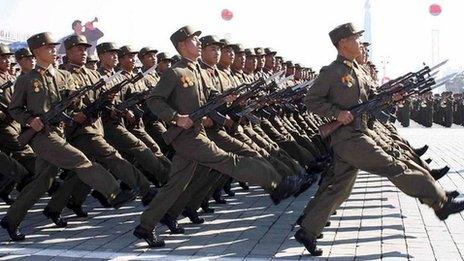
- Published19 July 2023
